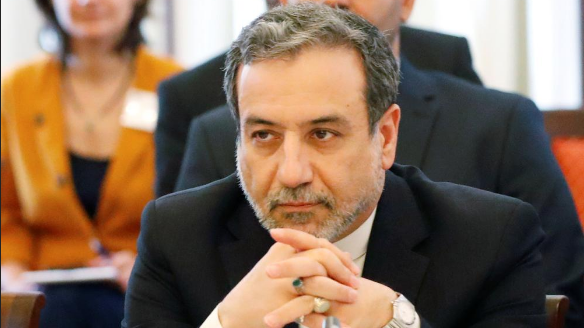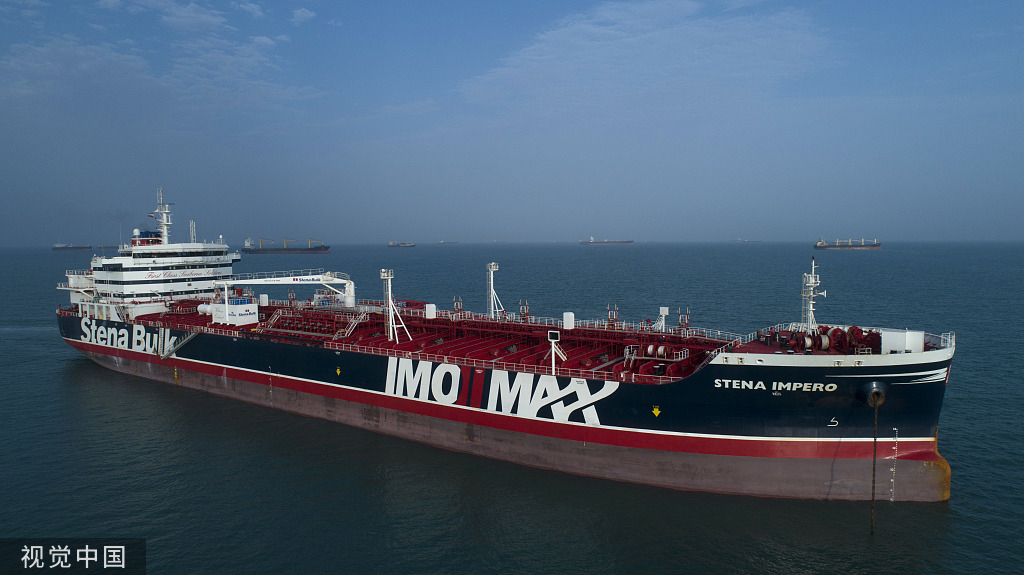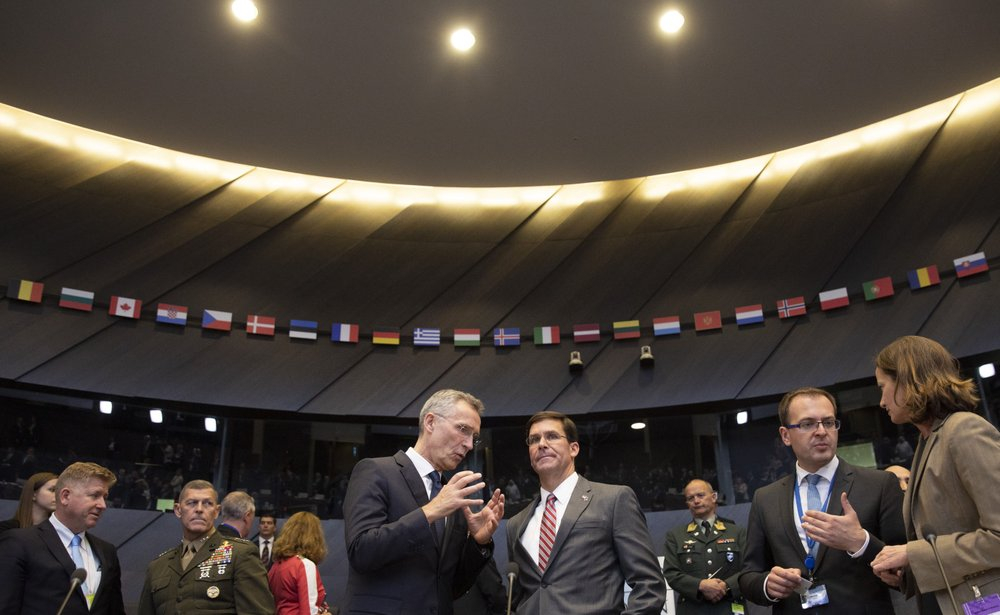

Iran's top nuclear negotiator Abbas Araqchi attends a meeting of the JCPOA Joint Commission in Vienna, Austria, June 28, 2019. /Reuters Photo
Iran will secure the Strait of Hormuz and not allow any disturbance to shipping in the key oil transport waterway, Iranian Deputy Foreign Minister Abbas Araqchi said on Tuesday during a visit to Paris, the state news agency IRNA reported.
"Iran will use its best efforts to secure the region, particularly the Strait of Hormuz, and will not allow any disturbance in shipping in this sensitive area," Araqchi told French Foreign Minister Jean-Yves Le Drian, IRNA reported.
Araqchi later met French President Emmanuel Macron and delivered a message to him from Iranian President Hassan Rouhani, and both Macron and Araqchi emphasized using diplomacy to bring peace to the world.

The UK-flagged oil tanker, Stena Impero, is seized by the Iranian Revolutionary Guard as it passes through the Strait of Hormuz, July 19, 2019. /VCG Photo
Earlier, France, Italy, the Netherlands and Denmark supported a European-led naval mission to ensure safe shipping through the Strait of Hormuz, three senior EU diplomats said on Tuesday, after Britain proposed the idea following Iran's seizure of a British-flagged oil tanker.
A senior EU diplomat said Britain's request, different from Washington's maximum pressure on Iran, will make Europeans easier to rally round it to guarantee the freedom of navigation. The proposal would not involve the European Union, NATO or the United States directly, the diplomat said.
It was the first formal European meeting since British foreign minister Jeremy Hunt outlined the plans to parliament on Monday to protect the Strait, through which a fifth of the world's oil shipment passes. Britain raised the plan after Friday's capture of oil tanker the Stena Impero by Iranian commandos at sea.
U.S. called its NATO allies to participate in a global effort to secure international waterways against threats from Iran in late June, but got no firm commitments from them, which contrasts sharply with the latest cautious backing of Britain at a meeting of EU envoys in Brussels.

NATO Secretary General Jens Stoltenberg (L) speaks with acting U.S. Secretary for Defense Mark Esper during a meeting at NATO headquarters in Brussels, June 27, 2019. /AP Photo
British foreign ministry and defense officials have also discussed a possible mission, which would likely involve not just ships but aircraft too, directly with their Italian, Spanish, French and German counterparts.
A senior German diplomat in Berlin said Foreign Minister Heiko Maas was in close contact with his British and French counterparts, Hunt and Jean-Yves Le Drian, to "contribute to the security" of the Gulf including on maritime security.
Britain aims to have further meetings with EU capitals including Stockholm to discuss the navy mission. The Netherlands now is assessing the British proposal, while a Spanish official said Madrid has held talks with London and was studying the idea. Poland and Germany also showed interest at the EU meeting.
The navy mission could be run by a joint France-British command, according to one of the envoys, since Britain has a naval base in Oman, while France has one in the United Arab Emirates.
Any mission would still need parliamentary approval in some EU countries, an envoy said.
(With input from Reuters)

Copyright © 2018 CGTN. Beijing ICP prepared NO.16065310-3
Copyright © 2018 CGTN. Beijing ICP prepared NO.16065310-3